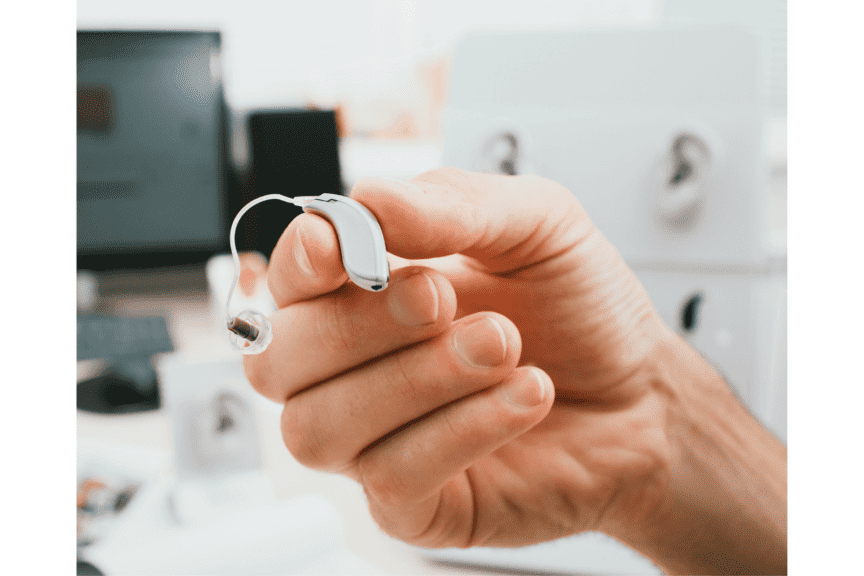- Navigating Concerts When Wearing Hearing Aids - April 28, 2024
- How to Care for Infants With Hearing Loss - April 15, 2024
- Hearing Aid Tips for Runners - April 5, 2024
Hearing loss is a gradual and often imperceptible journey that can significantly impact our quality of life. Fortunately, advancements in hearing healthcare have revolutionized the way we address this issue, ranging from prevention and diagnosis to management. As leading audiologists, we understand the importance of staying up-to-date with the latest research and technologies. In this article, we’ll guide you through the process of knowing when it’s time to update your hearing aids, exploring recent developments in hearing loss prevention, diagnosis, and management, and underlining the significance of early detection.
The Evolving Landscape of Hearing Loss Prevention
Prevention has always been the cornerstone of maintaining healthy hearing. Recent research has emphasized the role of lifestyle factors in hearing health. Incorporating a balanced diet rich in antioxidants and maintaining cardiovascular health through regular exercise can contribute to preserving your hearing abilities. Additionally, minimizing exposure to excessive noise, whether in occupational or recreational settings, remains crucial.
Cutting-edge studies have also explored the potential of ototoxicity monitoring. Medications and chemicals that are toxic to the auditory system can often go unnoticed until significant damage has occurred. Audiologists now have tools to monitor these potential threats, enabling timely intervention.
Diagnosis: The Key to Tailored Solutions
Timely and accurate diagnosis is pivotal in addressing hearing loss effectively. Traditional audiometric tests have evolved to become more precise, allowing us to identify specific types and degrees of hearing loss. Audiologists now employ advanced techniques such as speech-in-noise testing, which assesses your ability to understand speech in challenging environments—a common struggle for those with hearing loss.
Furthermore, the integration of tele-audiology has expanded access to diagnosis. Remote assessments enable individuals to undergo hearing evaluations from the comfort of their homes, making hearing healthcare more convenient and accessible.
Management Redefined: Embracing Technological Advancements
Hearing aids have undergone a paradigm shift in recent years, and keeping up with these innovations can vastly improve your hearing experience. The latest hearing aids are equipped with artificial intelligence (AI) capabilities that adapt to your surroundings in real-time. This technology allows for improved speech recognition, noise reduction, and personalized amplification, resulting in enhanced comfort and natural sound perception.
The connectivity revolution has also touched the world of hearing aids. Wireless connectivity enables direct streaming of phone calls, music, and other audio content to your hearing aids, eliminating the need for external devices. Moreover, smartphone apps now allow you to adjust settings and fine-tune your hearing aids discreetly, putting you in control of your listening experience.
When is it Time to Update Your Hearing Aids?
Recognizing the right time to update your hearing aids requires a blend of self-awareness and professional guidance. If you find yourself struggling to hear conversations even with your current hearing aids, it might be an indication that your hearing has changed. Additionally, changes in your lifestyle, such as new job environments or hobbies, might necessitate different hearing aid features.
Regular check-ups with your audiologist are crucial. They can monitor the effectiveness of your current hearing aids and advise you on potential updates. Audiologists stay informed about the latest advancements and can guide you towards hearing aids that align with your specific needs and preferences.
The Future of Hearing Healthcare
Looking ahead, futuristic interventions show promise in reshaping how we approach hearing loss. Gene therapies are being explored as a potential solution for genetic hearing impairments, which currently have limited treatment options. Researchers are also investigating the potential of regenerative medicine to restore damaged hair cells within the inner ear. And artificial intelligence is expected to play an even greater role in personalized hearing healthcare. AI algorithms can analyze vast amounts of data to predict individual hearing needs accurately, leading to more customized solutions.
Embrace the Journey to Better Hearing
In the journey towards better hearing, staying attuned to advancements in prevention, diagnosis, and management is crucial. Recognizing the signs that it’s time to update your hearing aids can significantly improve your quality of life. Remember, early detection remains the linchpin in preserving your hearing health. By working closely with your audiologist, you can embrace the future of hearing healthcare and enjoy the sounds of life with clarity and comfort.
Disclaimer: This article is for informational purposes only and should not be considered a substitute for professional medical advice. Please consult a qualified audiologist for personalized guidance on your hearing health.

